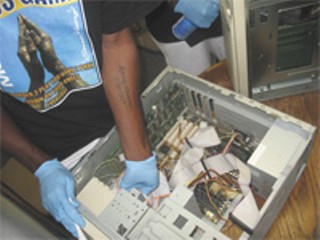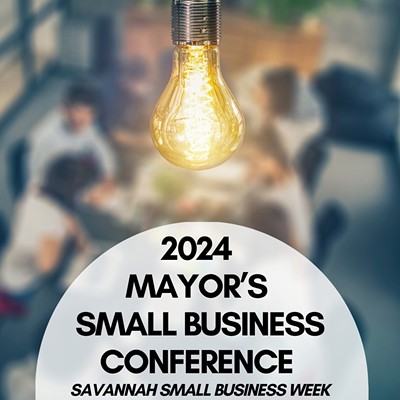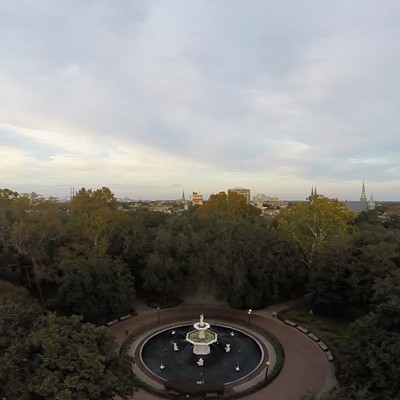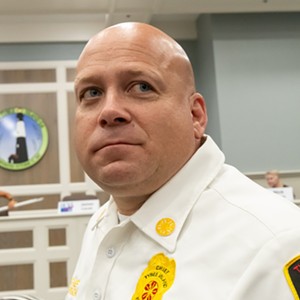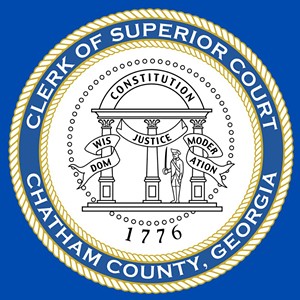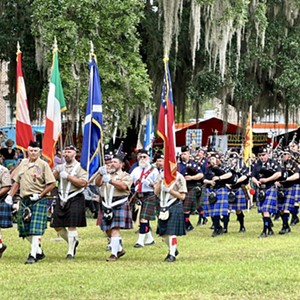THE SAVANNAH Development Renewal Authority (SDRA) and local arts education non-profit All Walks of Life Inc. (AWOL) are joining forces to help increase computer ownership among low-income families along the MLK corridor as part of the City's wireless internet initiative, which will create wi-fi hotspots along MLK from Bay Street to Gwinnett Street.
In January of this year, the City of Savannah received a $600,000 grant from the state’s Technology Authority to increase wireless access to the internet, effectively doubling the amount of fiber optic cable downtown from 5 miles to 10 miles. The first 5 miles of fiber optic cable was installed as part of the upgrades preceding the Olympics in 1996, and has been used almost exclusively by the City since then.
“Over the years we’ve been looking to expand that network to do other things,” explains Sean Brandon, former Assistant to the City Manager, who is still overseeing the wireless project.
“The decision to pursue state funding was a confluence of a whole bunch of things happening at one time. We were looking to expand, the state was issuing this grant, and we were looking at how the network could be leveraged socially. This all just seemed to happen within a two to three month period.”
The new network will offer three tiers of service—one dedicated solely to City-operated computers, a second that will offer low-cost, unlimited access, and a third that will offer free, limited access to residents along the MLK corridor.
“It’s a two-year project from beginning to end as far as installation of the fiber and other infrastructure,” says Paul Federling of the SDRA.
“Our part of the project is more of a marketing and outreach aspect geared at the Montgomery and MLK corridor.”
One of the issues facing the SDRA was “the digital divide,” the lack of computer ownership among low-income residents in areas like Yamacraw and Kayton-Frazier, which became a stumbling block for the planned expansion.
The solution was found in a partnership with local non-profit organization AWOL Inc, whose new IT program, affectionately known as The Goon Squad or G-Squad, takes donated computers and teaches young people how to repair them.
“The mission and activities of AWOL fits so nicely with what we’re trying to accomplish,” Federling says. “What they were already doing with some of the new programs geared at tech training just seemed to fit almost perfectly with what we are trying to accomplish.”
Once the donated computers have been cleaned and tested, all the existing software is uninstalled, and an open source Linux-based operating system known as Ubuntu is installed along with open source Office and other programs like games, media players, web browsers and more.
The open source software is completely compatible with more commonly used software applications like Microsoft Office, but it’s available without the exorbitant licensing fees that would have to be paid to install Windows, Office and other corporately developed programs. The open source software also tends to run more efficiently, meaning that even if a computer is several years old, it can still be useful.
“We’re giving these computers a new lease on life,” explains Murray Wilson, a local network consultant who is volunteering time to help instruct the G-Squad.
Besides the positive environmental impact of reducing the amount of electronics that end up in landfils, AWOL’s IT program effectively addresses two local problems at once, providing invaluable job skills to local young people who want to learn more about computers, and increasing access to technology and the internet on a local level by giving away the refurbished computers for free, allowing recipients to use the internet for school projects, find jobs, or take online courses at a local college.
According to a study by Kids Count, a division of the Baltimore-based Annie E. Casey Foundation, which advocates for the well-being of children and families, 48 percent of young people in Georgia grow up without internet access at home, ranking 42nd out of 50 on a national level.
Additionally, 36 percent of Georgia’s youth don’t have a computer at home (41st in the country), an unfortunate fact that leaves many kids in the state at a great disadvantage in the technology driven job market.
“Savannah is lagging education-wise behind other communities when it comes to the use of technology with children,” says AWOL’s Executive Director DaVena Jordan.
“Kids are starved for technology here. It makes sense that some of the kids who came into our program didn’t even have email addresses. It’s 2008, what 19 year old doesn’t have an email address? It’s crazy. That’s largely because they don’t have a computer at home and they don’t have internet access.”
AWOL’s goal is to refurbish up to 20 computers per week, and thanks to initial donations from several local companies, including Memorial Health, and over a dozen personal computers donated during GreenFest, they have already collected over 100 units, including both PCs and Macs.
“Word of mouth has been spreading like crazy,” says AWOL’s CEO Tony Jordan. “We’re getting 5-10 computers a day now. I’ve got computers out there that I can’t even pick up because we don’t have space for them all. We’ve already filled up a room in our office and rented a storage unit.”
If everything goes according to plan, AWOL will be ready to begin distributing the refurbished computers sometime early in 2009, around the same time that the new wi-fi becomes available.
“What we’re gearing up for at this time is to have the fiber in place by the end of the year and to have service bandwidth available during the first quarter of ’09,” Federling says.
“The grant portion plays out over the next two years, but what we’re seeking to develop is a sustainable system that will go well beyond that. We don’t just want to get it up and running in the first two years, we want [the program] to go long past that.”
If the wireless program works along MLK, the City has plans to begin to expand to other neighborhoods as well.
“The plan that we have in mind is to build out roughly five miles of fiber more. That will cover the MLK corridor as well as downtown Savannah,” Brandon says. “Then we would move year to year to expand that network into other parts of the city wherever possible. It will be pretty easy to expand once we’ve got those components in.” cs
For more information about how to donate computers to AWOL's G-Squad program, or to find out more about receiving a free computer once they become available, contact the All Walks of Life office at 912.303.4987, or email [email protected].
